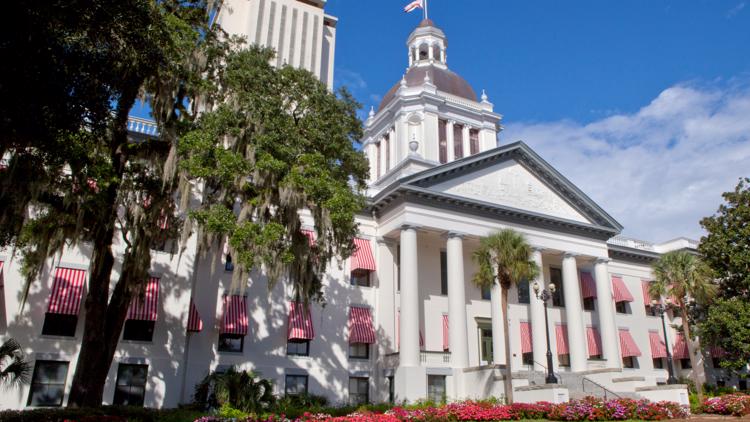ST. PETERSBURG, Fla. — Two Florida lawmakers have introduced state legislation that, if passed and signed into law, would end certain protections for government officials, including members of law enforcement.
Rep. Michele Rayner-Goolsby (D-St. Petersburg) and Sen. Shevrin Jones (D–West Park) filed related bills Thursday to essentially end qualified immunity.
The legislation would allow for more lawsuits to be pursued against police officers or government workers when they have violated someone's constitutional rights in Florida.
"As we’ve seen in recent years, our state and country are at a moment of reckoning when it comes to how communities, particularly those of color, are treated by those in authority," Sen. Jones wrote in a statement. "The ‘shoot first, think later’ mentality from law enforcement is dangerous, and our society pays a grave price when officers are essentially allowed to gun down people, without consequence. It’s long past time for reform, and I look forward to working with my colleagues to hold bad actors accountable and end this abuse of power once and for all.”
Qualified immunity shields people in government from being held personally liable in lawsuits accusing them of violating a person's rights. Currently, the case can only move forward when a court can establish the government worker violated a “clearly established” statutory or constitutional right.
"When determining whether or not a right was 'clearly established,' courts consider whether a hypothetical reasonable official would have known that the defendant’s conduct violated the plaintiff’s rights," explains Cornell Law School. "Courts conducting this analysis apply the law that was in force at the time of the alleged violation, not the law in effect when the court considers the case."
The newly-filed bills would make it easier to pursue a civil case against an individual government worker accused of wrongdoing.
It's important to note that qualified immunity, in its current state, only applies to lawsuits against government employees as individuals. Governments in general can still be sued for damages caused by an employee's behavior.
"Although qualified immunity frequently appears in cases involving police officers, it also applies to most other executive branch officials," Cornell Law School adds. "While judges, prosecutors, legislators, and some other government officials do not receive qualified immunity, most are protected by other immunity doctrines."
In reference to the newly-filed legislation, Rep. Rayner-Goolsby says she made a commitment to continue to pursue solutions for equitable justice and government accountability, and this legislation is an extension of that civil rights work.
"With the filing of this bill, I hope to heal the fragmented relations within our communities with law enforcement," Rep. Rayner-Goolsby wrote in a statement. "Taking measures to show that every life has value and that no one is above the law is one way we can make that future a reality and I urge my colleagues to support qualified immunity reform.”
►Stay In the Know! Sign up now for the Brightside Blend Newsletter



